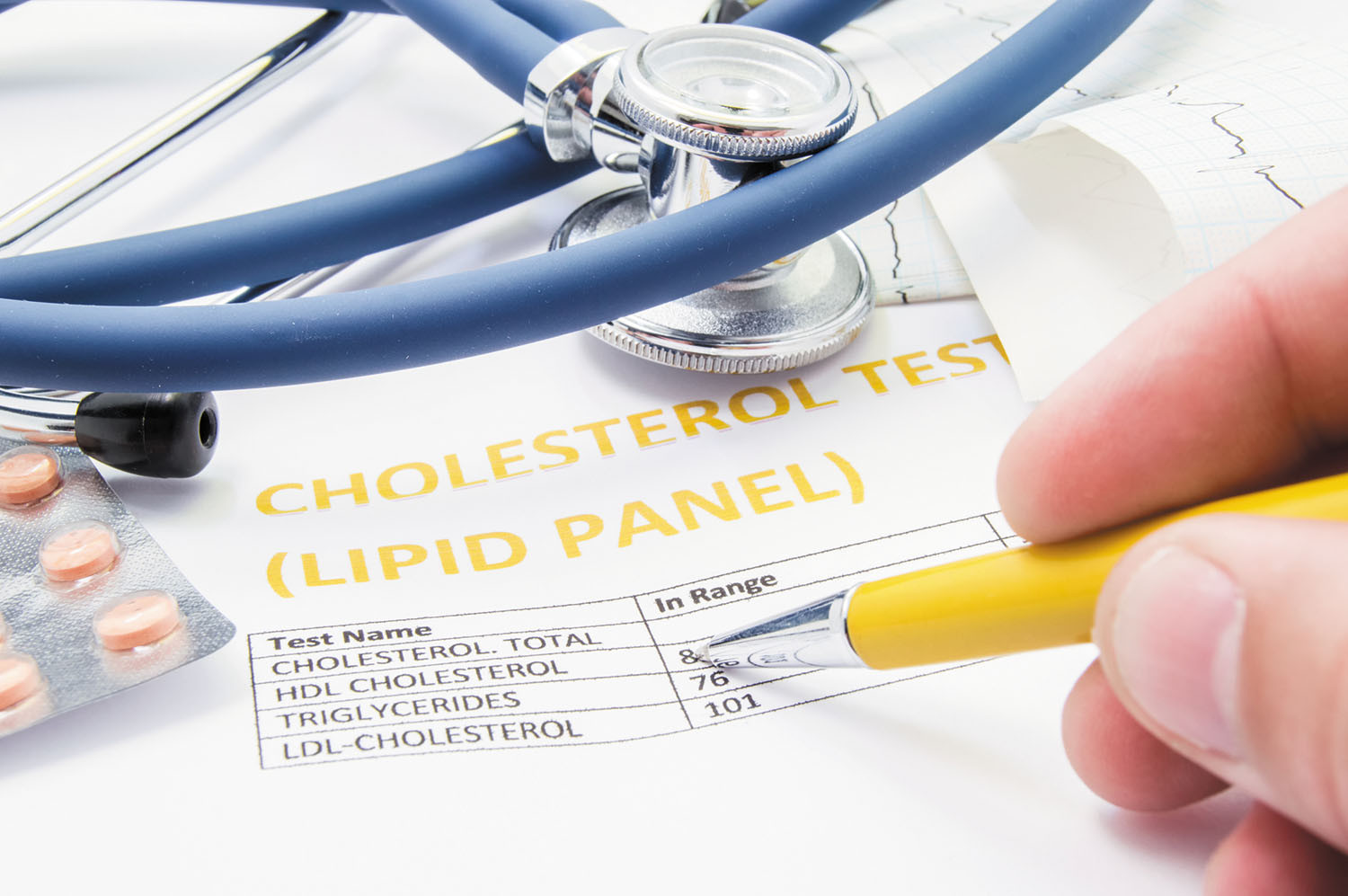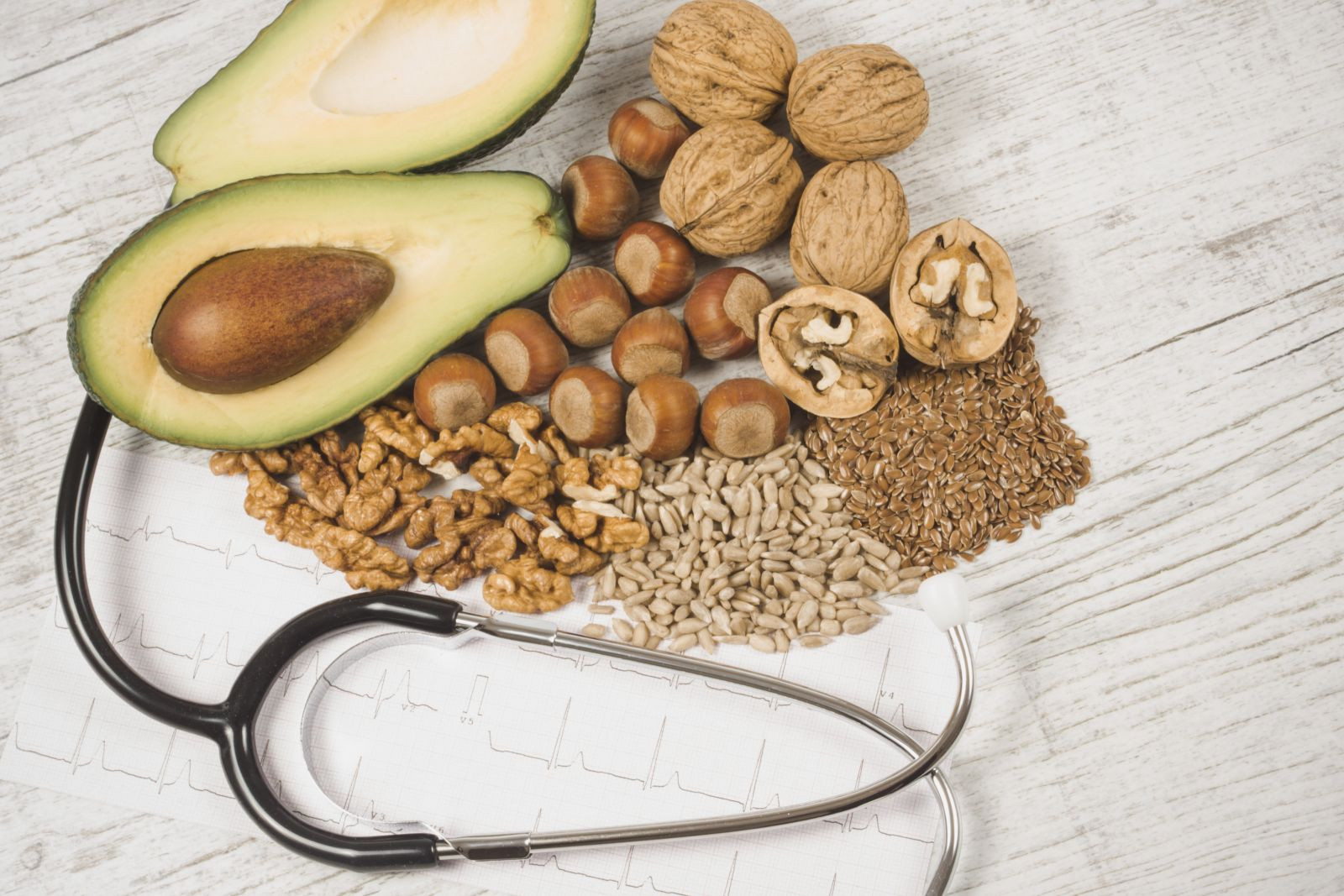
What are somatic workouts?

How to curb your stress eating

How to spot Parkinson’s disease symptoms

8 simple ways to reduce ultra-processed foods in your diet

Heart failure symptoms in women: How they’re different

GERD diet: Foods to avoid to reduce acid reflux

Strong is the new skinny

Everyday habits that sneakily weaken your bones

Don’t wait to get help for back pain

Correcting how you walk may ease osteoarthritis knee pain
Heart Health Archive
Articles
The new, potent cholesterol-lowering drugs: An update
For people at high risk, PCSK9 inhibitors may prevent heart attacks and save lives. But gaining access to these pricey drugs remains a challenge.
Image: © Shidlovski/Getty Images
Three years ago, the FDA approved two drugs that lower harmful LDL cholesterol values dramatically — by more than 50%. The drugs, alirocumab (Praluent) and evolocumab (Repatha), belong to a new category of medications known as PCSK9 inhibitors. Both are given by a self-administered injection once or twice a month.
They're intended for people whose cholesterol levels remain stubbornly high, despite making lifestyle changes (such as diet and exercise) and taking the maximum dose of a high-potency statin and other cholesterol-lowering drugs. In the past two years, results from two large studies found that both PCSK9 inhibitors lowered the risk of serious heart-related events such as heart attack and stroke by 15%.
Vegetable of the month: Avocado
Image: © ilietus/Getty Images
Avocados are one of the few fruits (yes, technically they're a fruit, not a veggie) that contain healthy unsaturated fats. These fats help lower undesirable LDL cholesterol when eaten in place of saturated fat.
The popular Haas avocado, which has dark-green, nubby skin, grows year-round in California. A larger variety with smoother, bright-green skin grows in Florida. Marketed as SlimCado, it contains about half the fat and a third fewer calories than Haas avocados.
Midlife fitness linked to less dementia later in life
Research we're watching
Image: © radyreese/Getty Images
High cardiovascular fitness during middle age may lower the likelihood of dementia late in life, according to a decades-long study.
For the study, researchers asked 191 middle-aged women to ride an exercise bike until they were exhausted. They then grouped the women according to their peak cardiovascular capacity. Just 40 women met the criteria for high fitness, while 92 were in the medium category, and 59 were in the low category.
Plant-based fats: Better for the heart than animal fats?
Research we're watching
Monounsaturated fats — which fall under the umbrella of unsaturated fats — are found in olives, nuts, and avocados, as well as in meat and dairy products. Although some studies have found that diets rich in monounsaturated fat lower the risk of heart disease, others have not.
But the source of the fat appears to make a difference. That's according to researchers at the Harvard T.H. Chan School of Public Health, who studied dietary data from more than 90,000 people over an average of 22 years. Heart disease risk was lower when unhealthy saturated fat, refined carbohydrates, or trans fat was replaced by plant-based monounsaturated fat, but not by animal-based monounsaturated fat. Higher intake of the plant-based fats was associated with a 16% lower risk of dying from any cause. In contrast, higher intake of the animal-based fats was linked to a 21% higher risk of dying from any cause.
A tipping point for developing high blood pressure?
Research we're watching
Image: © Nik01ay/Getty Images
Although conventional wisdom suggests blood pressure rises gradually as people age, that isn't true for everyone, according to new research. However, a systolic blood pressure (the top number in a reading) that regularly goes above 120 to 125 mm Hg may signal impending high blood pressure, regardless of a person's age.
The study included data from 1,252 of the original participants of the Framingham Heart Study, who had their blood pressure measured roughly every two years between 1948 and 2005. Researchers then categorized the participants based on the age at which they received a diagnosis of high blood pressure (in their 40s, 50s, 60s, 70s, or never). They defined high blood pressure by the standard at the time: equal to or over 140/90 mm Hg.
Summer grilling may raise blood pressure risk
Research we're watching
Image: © Lauri Patterson/Getty Images
Many people switch from stove to grill in the warmer months. But a new study links regular consumption of grilled meat to an elevated risk of high blood pressure. A study presented at the American Heart Association's 2018 Epidemiology and Prevention — Lifestyle and Cardiometabolic Health Scientific Sessions looked at more than 100,000 people in three different studies who ate at least two servings of beef, poultry, or fish each week.
They found that those who grilled their meat or broiled or roasted it at high temperatures more than 15 times each month had a 17% higher risk of high blood pressure than people who grilled, roasted, or broiled less than four times a month.
Noisy workplaces may boost cardiovascular risk factors
Research we're watching
Is your workplace noisy? You may want to keep close tabs on your blood pressure and cholesterol. A CDC study published in the American Journal of Industrial Medicine found that high cholesterol and high blood pressure were more common among workers who toiled in noisy environments.
The study found that 25% of U.S. workers surveyed reported experiencing noise exposure at work. The noisiest industries included mining, construction, and manufacturing.
Choosing life with a VAD (ventricular assist device)
Despite the challenges of needing to use a battery-operated ventricular assist device (VAD) for heart failure, one man came to terms with his situation and found ways to adapt and enjoy his life as much as possible.
Clinicians sometimes misread heart attack symptoms in women
Research we're watching
Doctors may be more likely to dismiss heart attack symptoms as not heart-related in women younger than age 55, according to a study published online Feb. 20, 2018, by Circulation. This may be the case because women often report other symptoms in addition to chest pain, said the study's authors.
The researchers interviewed more than 2,000 women and 976 men ages 18 to 55 who were hospitalized for a heart attack — what doctors call acute myocardial infarction (AMI) — at 100 hospitals that are participating in a study. They found that both men and women reported chest pain and pressure, but women were more likely to have other symptoms as well, such as pain in the jaw, neck, and arms; indigestion; or shortness of breath. In addition, women were more likely than men to tell their doctors that they thought the symptoms might be stress-related.
Overcoming your barriers to exercise
Find ways to be more active — even if you have sore joints or other limitations.
Image: © Cecilie_Arcurs/Getty Images
You're probably well aware that exercise is the best way to keep your heart strong and healthy. Any activity that moves your muscles will raise your heart rate, making it better able to pump blood through your body. Over time, exercise enables your heart to beat slower and keeps your blood pressure under control.
But many people don't exercise regularly. Just over half of adults in the United States meet the recommended physical activity guidelines (see "Weekly physical activity goals"). Two of the main reasons people say they don't exercise are (1) not having enough time and (2) having joint pain, fatigue, or a chronic health condition.

What are somatic workouts?

How to curb your stress eating

How to spot Parkinson’s disease symptoms

8 simple ways to reduce ultra-processed foods in your diet

Heart failure symptoms in women: How they’re different

GERD diet: Foods to avoid to reduce acid reflux

Strong is the new skinny

Everyday habits that sneakily weaken your bones

Don’t wait to get help for back pain

Correcting how you walk may ease osteoarthritis knee pain
Free Healthbeat Signup
Get the latest in health news delivered to your inbox!
Sign Up











